Top 12 Human Foods That Dogs Should Avoid
Though Fido may be giving you those big ol' puppy dog eyes, be aware of the foods & risks.

As pet owners, we should all be aware of what goes into our dogs' bodies. Here are a few of the top items that us as humans can eat safely - however, should either be moderated or avoided at all costs.
Alcohol:

Though alcohol may be a nice choice of drink to unwind at the end of a long day, or week for us, it is not a good choice of beverage for our beloved pets. Alcohol can actually cause some pretty awful side effects, which include:
- Vomiting
- Diarrhea
- Decrease in Coordination
- Central Nervous System (CNS) Depression
- Difficulty Breathing
- Tremors
- Coma
- Possible Death
Avocado:

There have been different debates on feeding your dog avocados. The fruit contains a toxin called persin - though not poisonous to dogs, it is not recommended to feed to pets in excess amounts. Although a great and healthy snack for us humans, it can cause vomiting, diarrhea and pancreatitis in dogs - which is because the fruit is high in natural fats.
The most dangerous part of the avocado would be the skin of the fruit itself. Unlike the meat of the avocado (the delicious part), the skin cannot be digested by dogs.
All in all - avocados aren't completely bad for pets, but definitely recommend limiting feeding your four-legged friend this tasty treat.
Chocolate:
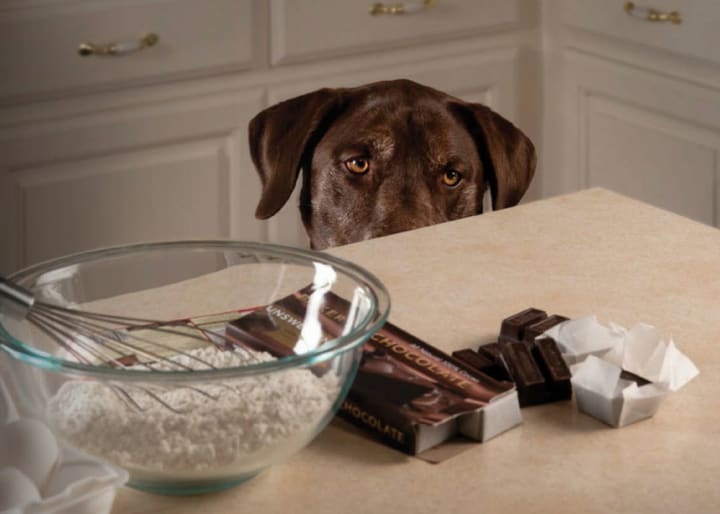
Chocolate. One of the most delicious treats humans have! Milk, dark, and white chocolate - oh the choices. Most people know that dogs cannot eat chocolate, but do you know why? Chocolate contains theobromine and methylxanthines which are poisonous to dogs. The darker the chocolate, the more of the toxins are in the food.
If a dog has ingested chocolate they may show signs of:
- Vomiting
- Diarrhea
- Panting
- Excessive Thirst and/or Urination
- Hyperactive
- Abnormal Heart Rhythm
- Muscle Tremors
- Seizures
- Possible Death
Citrus:

Citrus fruits may not be completely harmful to our furry friends, but are ones that needs to be limited. Oranges, tangerines, and clementines can be fed to dogs in small amounts - but still recommend to keep an eye on them. With the fruit having an increased amounts of natural sugar, this can cause a GI upset - making it uncomfortable for you dog.
Safe bet? Try to avoid feeding your dog citrus - but if you feel the need to share your fruit, be sure to limit their intake.
Coconut & Coconut Oil:

Like avocados, coconuts and coconut oil have some health benefits - however, they should be in fed only in specific limits. Small amounts of coconuts and coconut oil are okay for pets, in fact, they have benefits for skin problems, bad breath, shiny coats, and improved digestion. But you do want to limit the intake of coconuts because they contain high amounts of fatty oils which can cause upset stomach, loose stool or diarrhea.
Please review the dosage suggestion below to see how to safely introduce coconut oil into your dog's diet.
Grapes & Raisins:

Grapes and raisins are a delicious and healthy snack for kids and adults - not so much for pups. Most people know that dogs and grapes don't mix, however, most people don't think twice about raisins. Raisins are made from grapes - dried out/sun dried - therefore they pose the same risk as grapes towards dogs. There is an unknown toxin that is in this particular fruit, that causes kidney failure. Keep you pup safe and keep them away from grapes.
Milk & Dairy:

Who doesn't love a nice cold, frosty treat on a hot summer's day? Milk and dairy aren't 100 percent bad for your pet, however, it's one of those things that need to be in small increments. Not all dogs can tolerate dairy - like humans, they can be lactose intolerant. Similar to the way humans feel when they cannot digest the lactose in dairy, dogs will experience possible diarrhea and digestive upset.
A good alternative for a frosty treat if your pup cannot handle dairy would be peanut butter or bananas.
Nuts:

Nuts can be very harmful to a dog's digestive system, so it's best suggested that they stay away from the nutty & salty snacks. Particular nuts to keep from pets are:
- Almonds
- Walnuts
- Macadamia
- Pistachios
- Hazelnuts
- Pecans
- Hickory
Because nuts are so high in fats and oils they can cause some real havoc on your pets. These symptoms include:
- Neurological Problems
- Weakness
- Vomiting
- Diarrhea
- Pancreatitis
- Seizures
- GI Obstructions
- Upset Stomach
Onions & Garlic:

Onions and garlic, great ingredients to season our foods with - not so much for dogs. These bulbous plants, which also include: leeks, scallions, chives, and shallots, are from the allium species. If a dog were to ingest any of these plants it could lead to gastrointestinal irritation, and cause red blood cell damage; causing the cell to be unable to carry oxygen, and break down and cause anemia.
Raw/Undercooked Meats & Eggs:
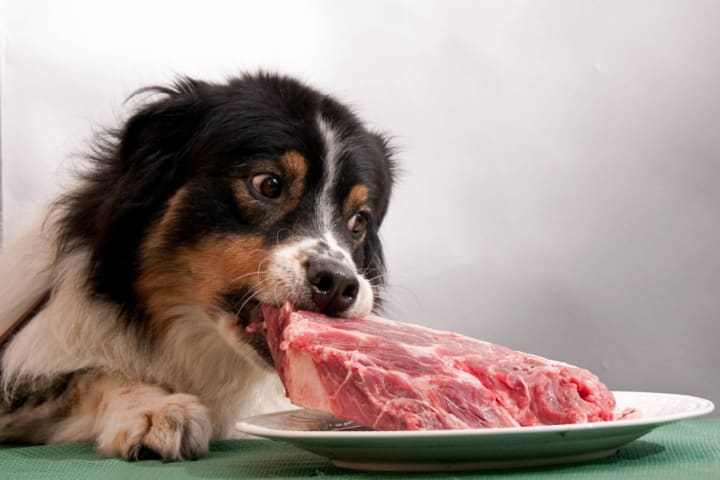
Like humans, pets should not eat undercooked or raw meats and eggs. salmonella and E. Coli are two things that can also effect our pets like it can us. Some people like to feed their dogs a "raw diet" but should be very weary on what and how much they eat.
Fully cooked eggs can be very beneficial to your dog's coat and skin, however, feeding them undercooked or raw eggs can have a reverse effect. Ingesting raw eggs reduce the absorption of biotin (a Vitamin B) and can cause skin lesions, dry coats, anemia, and make them lethargic.
So be sure to cook your dog's meats and eggs - keep them healthy and safe.
Xylithol:

This ingredient, used as a sweetener, can be harmful to your dog's health. Though this tastes and looks just like sugar, it should not be ingested by your pet. Common uses for xylitol in human foods are: gum, candy, and baked goods. Keep your little sweetie away from these sweets to avoid these common health risks:
- Liver Failure
- Hypoglycemia - Low Blood Sugar
- Vomiting
- Lethargy
- Seizures
- Possible Death
Yeast Dough:
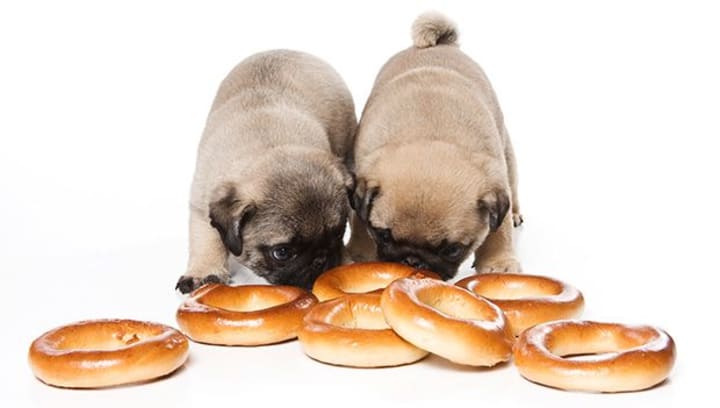
Yeast (ingredient in dough to make it rise) is not a very good thing to have your dog be eating all the time - if at all. The yeast in breads can actually react in your pet's stomach and actually rise, causing painful bloating and gas to become trapped. This typically happens more with uncooked/undercooked dough, which also contains ethanol (alcohol) and should be avoided.
Take Precautions
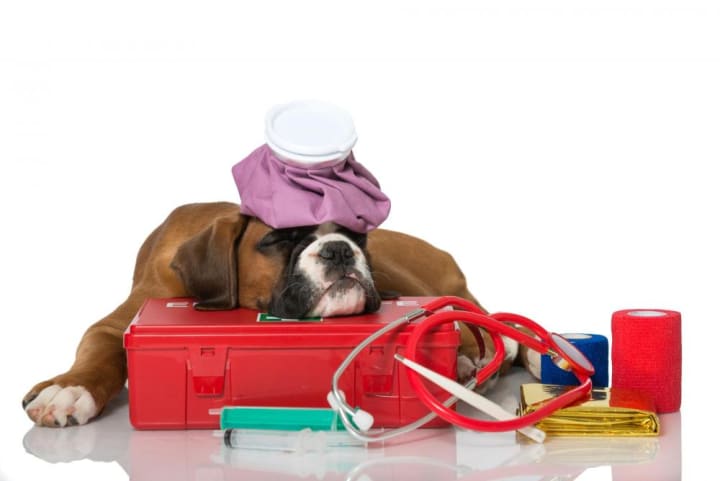
If you have been feeding your dog any of these foods - either take care in moderation, or just stop all together. If you have any concerns with your dogs diet, please contact you vet; they are the experts!
If you are worried about any type of poisoning that you dog may have gotten into, contact you vet, or call the ASPCA 24 hour emergency poison control line at (888) 426-4435.
About the Creator
Katherine Gilfoy
New to the blogging world! Animal lover, total foodie, and very crafty. I enjoy traveling, camping, hiking - anything outdoors!




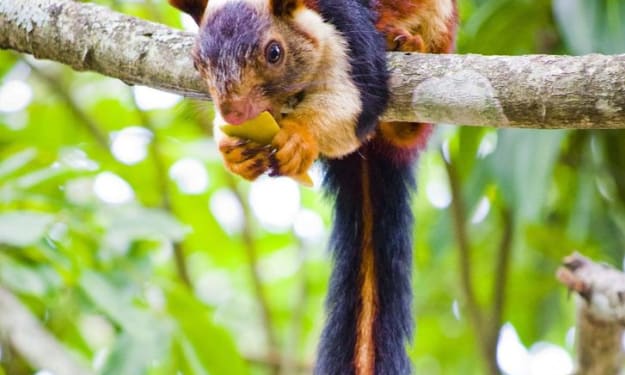

Comments
There are no comments for this story
Be the first to respond and start the conversation.